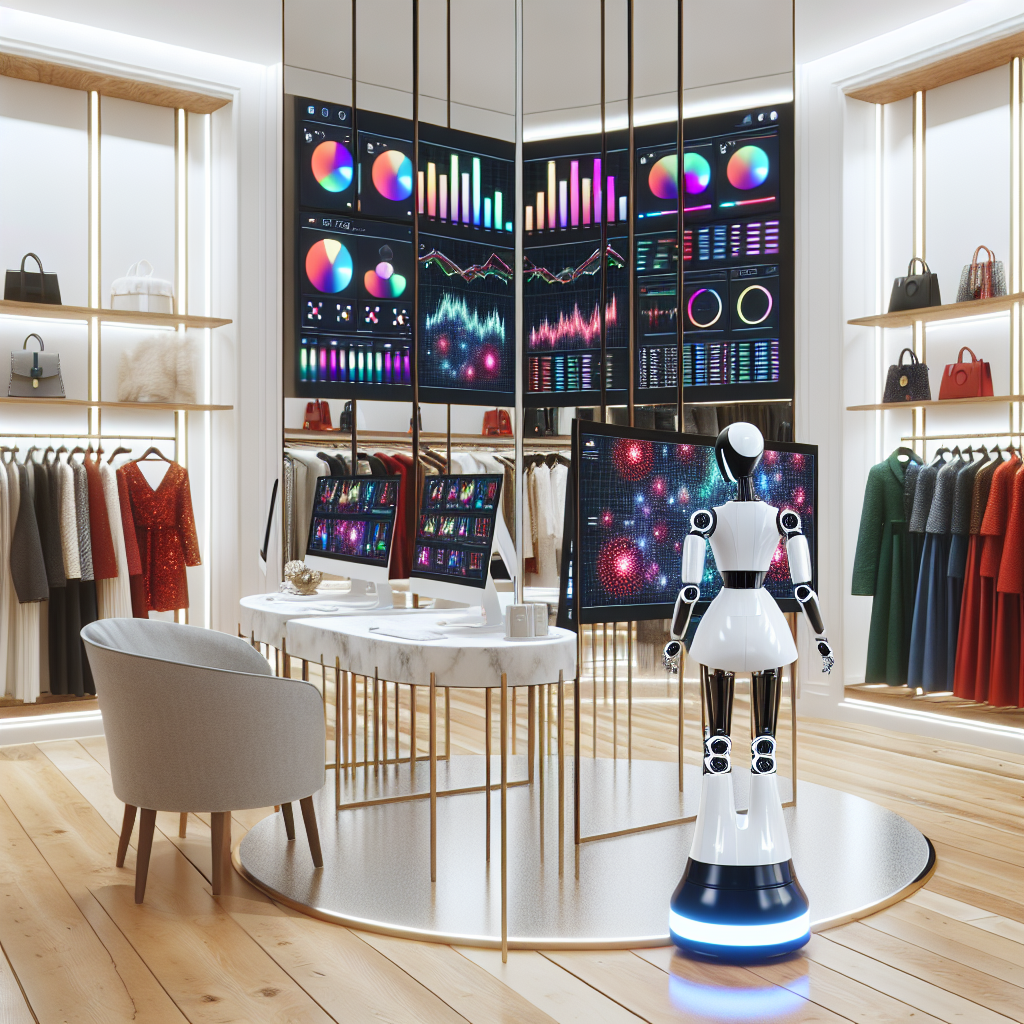AI and Fashion Retail Sales Analysis: How Artificial Intelligence is Improving Revenue Tracking
In the fast-paced world of fashion retail, staying ahead of the competition and understanding consumer behavior is crucial for success. With the rise of artificial intelligence (AI) technology, retailers are now able to harness the power of data analytics to gain valuable insights into their customers’ preferences and purchasing habits. By leveraging AI tools for revenue tracking, fashion retailers can optimize their sales strategies, enhance customer engagement, and ultimately drive revenue growth.
AI-powered revenue tracking systems use advanced algorithms to analyze vast amounts of data from various sources, such as online sales, in-store transactions, social media interactions, and customer feedback. By processing this data in real-time, AI can provide retailers with actionable insights and predictive analytics to help them make informed decisions about inventory management, pricing strategies, and marketing campaigns.
One of the key benefits of using AI for revenue tracking in fashion retail is its ability to identify patterns and trends in customer behavior. By analyzing historical sales data and customer interactions, AI algorithms can predict future trends and help retailers anticipate demand for specific products. This enables retailers to optimize their inventory levels, reduce stockouts, and increase sales by offering the right products to the right customers at the right time.
In addition to predicting future trends, AI-powered revenue tracking systems can also help retailers personalize their marketing efforts and improve customer engagement. By analyzing customer data, such as purchase history, browsing behavior, and social media interactions, AI algorithms can segment customers into different groups based on their preferences and purchasing habits. This allows retailers to tailor their marketing messages and promotions to specific customer segments, increasing the likelihood of conversion and driving revenue growth.
Furthermore, AI can also help fashion retailers track the effectiveness of their marketing campaigns and optimize their advertising spend. By analyzing the performance of different marketing channels, such as social media, email marketing, and online advertising, AI algorithms can identify which channels are driving the most sales and ROI. This allows retailers to allocate their marketing budget more efficiently and focus on the channels that are delivering the best results.
Overall, AI-powered revenue tracking systems are revolutionizing the way fashion retailers analyze and optimize their sales performance. By leveraging the power of AI technology, retailers can gain valuable insights into customer behavior, predict future trends, personalize marketing efforts, and optimize advertising spend. This ultimately leads to increased revenue, improved customer satisfaction, and a competitive edge in the fast-paced world of fashion retail.
FAQs:
Q: How does AI help fashion retailers track revenue?
A: AI-powered revenue tracking systems use advanced algorithms to analyze vast amounts of data from various sources, such as online sales, in-store transactions, social media interactions, and customer feedback. By processing this data in real-time, AI can provide retailers with actionable insights and predictive analytics to help them make informed decisions about inventory management, pricing strategies, and marketing campaigns.
Q: What are the benefits of using AI for revenue tracking in fashion retail?
A: AI can help retailers identify patterns and trends in customer behavior, predict future trends, personalize marketing efforts, optimize advertising spend, and ultimately drive revenue growth. By leveraging AI technology, retailers can gain valuable insights into their customers’ preferences and purchasing habits, enabling them to make informed decisions about inventory management, pricing strategies, and marketing campaigns.
Q: How can AI help fashion retailers improve customer engagement?
A: By analyzing customer data, such as purchase history, browsing behavior, and social media interactions, AI algorithms can segment customers into different groups based on their preferences and purchasing habits. This allows retailers to tailor their marketing messages and promotions to specific customer segments, increasing the likelihood of conversion and driving revenue growth.

